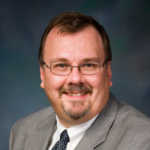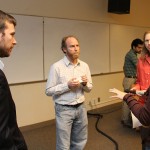 Several staff members were honored with Michigan Tech Staff Council Making a Difference Awards at an awards program in the MUB Wednesday.
Several staff members were honored with Michigan Tech Staff Council Making a Difference Awards at an awards program in the MUB Wednesday.
Team of Amanda Cadwell (CEE), Christina Sarazin, Catherine Burns and Lori Weir
This team was nominated for their effort in making last year’s UAW classes a reality. Through collaboration, hard work and determination they created a cutting-edge program to advance the skills of UAW workers that will be a benchmark for other universities. According to President Glenn Mroz, it has already generated interest with UAW at the state level.






